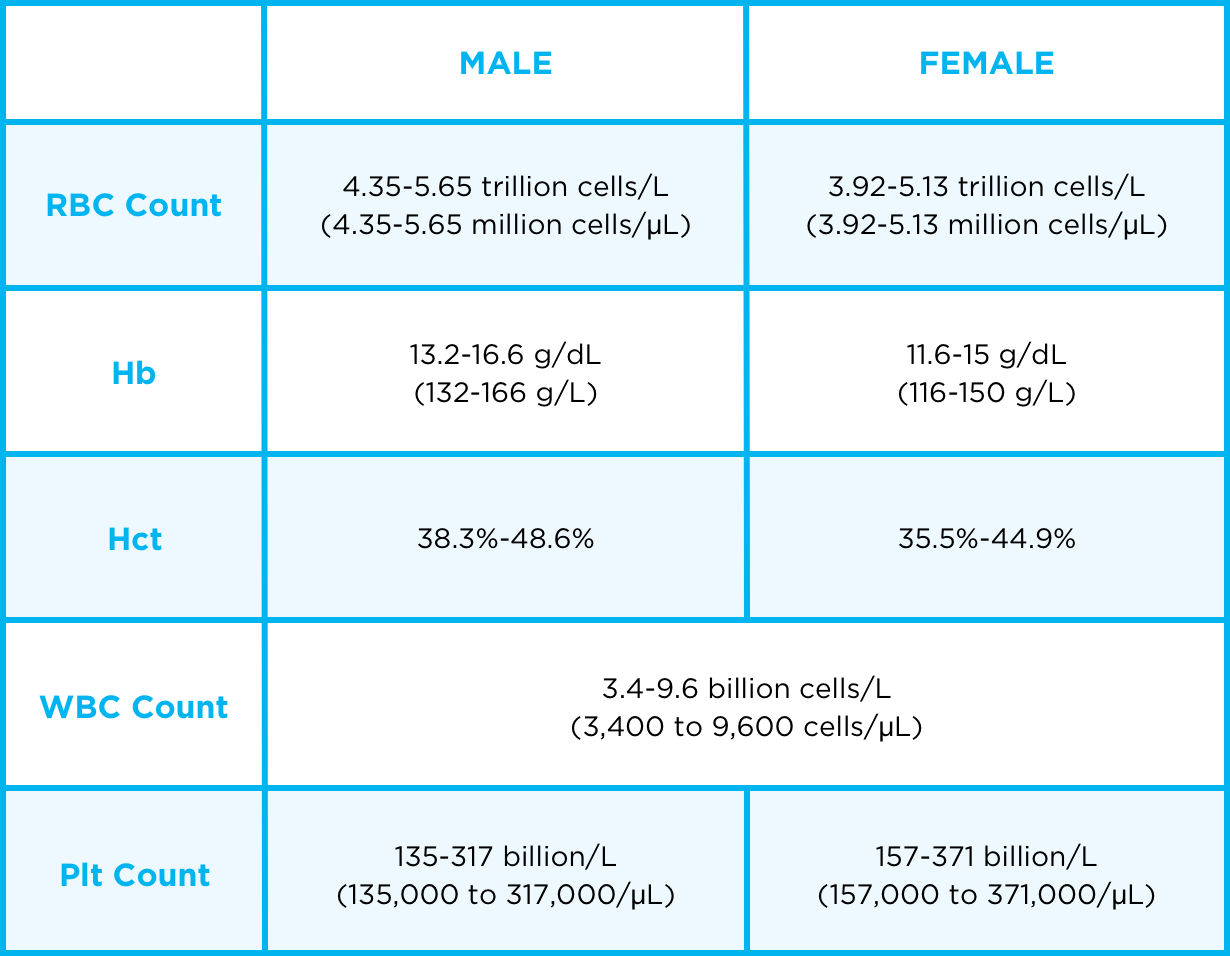Learning the ABCs of Your CBC

Author: Voices of MPN
If you’re living with one of the rare, chronic blood cancers known as a myeloproliferative neoplasm (MPN), you know how important it is to keep track of changes in your health, specifically with regard to your blood counts. That’s because MPNs such as polycythemia vera (PV), essential thrombocythemia (ET) or myelofibrosis (MF), are diseases of the bone marrow, which is the soft, spongy tissue inside of the bone, where blood cells are made.
Healthcare Professionals use specific lab tests to take a closer look at your blood cell counts. In doing so, they can confirm if they are increasing, decreasing, or staying the same. This information may provide valuable insights about your MPN—including how it may be managed.
What Is a Complete Blood Count?
For people with MPNs, a complete blood count (or CBC) is a commonly used lab test that measures (or counts) how many red blood cells, white blood cells and platelets you have in a given sample of blood. It also measures hemoglobin and hematocrit, two key measures related to red blood cells.
- Red blood cells (RBCs) are made in the bone marrow and carry oxygen from the lungs to all parts of the body. Also known as erythrocytes
- White blood cells (WBCs) are a type of blood cell located in the blood and lymph tissue that are part of the immune system. They help fight infection and other diseases. Also known as leukocytes
- Platelets (Plt) are a type of blood cell that helps form blood clots to slow or stop bleeding and help heal wounds. Also called thrombocytes
- Hemoglobin (Hb) is the iron-rich protein in red blood cells that carries oxygen
- Hematocrit (Hct) is a measure of the volume of red blood cells in the blood, which is stated as a percentage
WHY ARE CBCs IMPORTANT FOR PEOPLE WITH MPNs?
Because PV, ET, and MF are progressive diseases, they can change or get worse over time. That’s why ongoing blood tests are so important, as they can help identify changes early on. Each of these MPNs are also known for producing an abnormal number of certain blood cells. In fact:
- In PV, people often have high red blood cell counts, although other types of blood cells may also be higher than normal
- In ET, the bone marrow makes too many platelets
- In MF, people often have low hemoglobin levels, which can indicate having too few RBCs (also known as anemia)
What Do CBC Results Look Like?
The results of a CBC will include a set of numbers called a “reference range,” which is based on the normal range found in most people, as shown below.

It’s important to be aware of the individual target range that your Healthcare Professional has set for you, as this can help you understand if your results are above or below what would be considered “normal” for you. If your results are outside of the normal range, your Healthcare Professional can help you understand why—and help determine if additional attention is required.
How Often Will I Need a CBC?
Every MPN journey is unique, and how often your MPN healthcare team requests a CBC will depend upon your individual circumstances. However often your healthcare team uses blood tests to track your MPN, it’s crucial to remember keeping an ongoing record of your blood counts is important. Not only does it help you better understand the status of your MPN over time, but it also gives you the knowledge to effectively partner with your care team and have informed and meaningful discussions. And that empowers you to become your own health advocate and take a more active role in your care.
You can track your blood counts using an online tracker tool like the one available at www.MPNSymptomTracker.com/Expert
Learn more about the various tests used to diagnose and manage MPNs.
Related Articles

Track, Trend, Talk: Three Important Ways to Take an Active Role in Your Care
Author: Voices of MPN
READ ARTICLE






